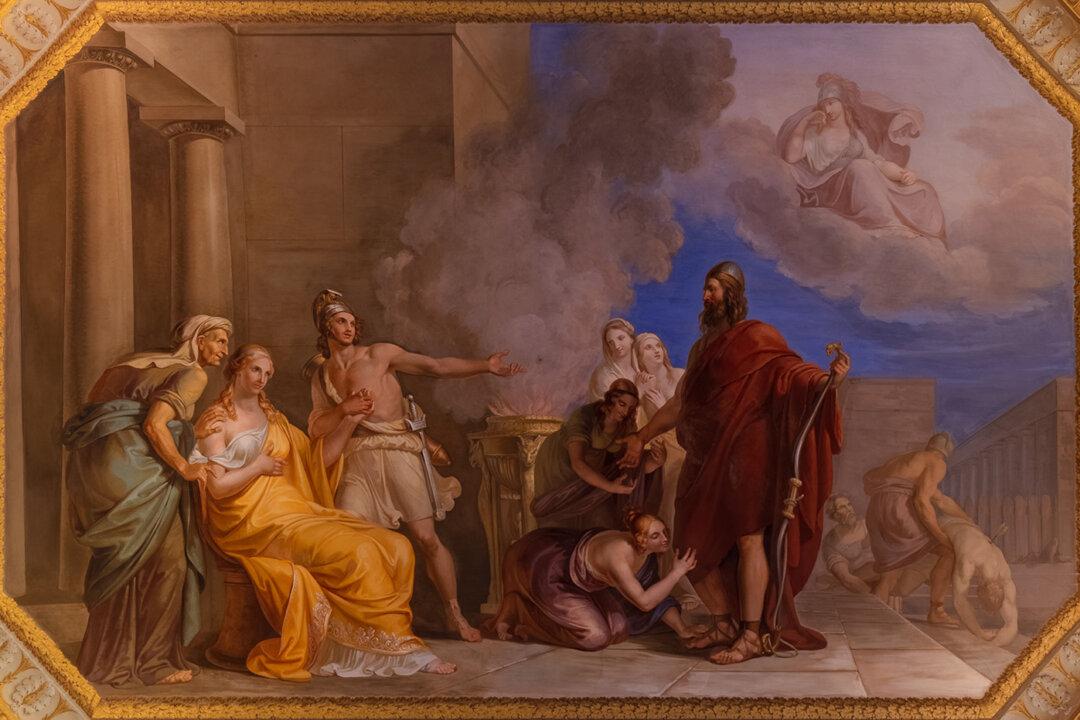What does it mean to return? What does it mean to come home? Home is where one belongs, the people and places that are ours while we are theirs. Yet that belonging comes to its fulness only through our actively choosing it and conforming to the restrictions placed on us by dedication to a people and a place. Such dedication requires constant choosing, reaffirming, and returning.
The “Odyssey” by Homer explores these notions of returning and belonging in great depth. “Nostos”—“return”—stands out as the signal word and concept in the poem, as Eva Brann tells us in her book “Homeric Moments.” But there are different kinds of returning. She writes: “It appears that Coming Home, Return, is not so simple as surviving the sea and retaking a palace; you may come home but not be there, you may return but not be you.” In the “Odyssey,” Homer sings to us of a deeper kind of return—the perpetual returning of true fidelity.






